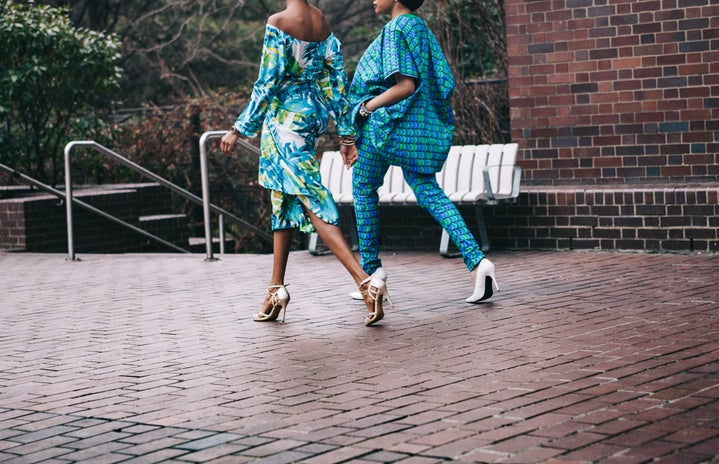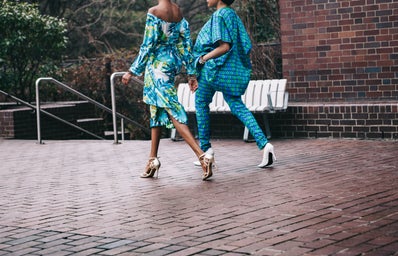Since the dawn of ‘fast fashion’ companies like Fashion Nova, Boohoo, Pretty Little Thing, Missguided etc. the issue of fashion’s mimicking or copycat problem is one of intense debate.
Such companies are called ‘fast fashion’ because their business model solely revolves around copying trends and making them readily available, in this case, to people who don’t want to spend their money on designer clothes that these organisations are duping.
This issue is certainly a bad thing when these huge retailers copy and reprint designs that were produced by lesser known designers. But it’s argued that it’s a good thing when these fast fashion companies replicate designs by Gucci, Balenciaga etc. because it won’t directly implicate sales for the designer.
We live in somewhat of a ‘hype beast’ culture when it comes to fashion. In that, there’s a select amount of people that would prefer to wear an item of clothing, for example a jacket, that almost ostentatiously advertises that designer. As opposed to a jacket that costs a third, even a fourth of the price, and is also warmer, durable and entirely practical as far as jackets go. With this in mind, it separates people into two groups, those that have the ability to overlook the price and appreciate and see an item of clothing not only as an investment but as a stylish piece of fashion. And those that equally want to follow trends, but don’t have the urge to spend money on, ultimately, a label.
If ever researching the topic of the copyright laws involving duplicate clothing that are ‘luxury for less’, you’re sure to come across Brittany Rawlings, a fashion lawyer and designer. She stated that “if we protect the designs, we’ll stunt the growth”. And in a way, this defends the idea that these companies producing dupes are in fact a good thing. These companies never claim to be the real thing and this is what separates them from actual counterfeit pieces of clothing that seek to deceive the buyer.
Under American copyright laws, brands and designers are legally allowed to simulate one another’s clothing because fashion is considered a manufacturing trade rather than a creative one. However, over here in Europe, it’s a little different as you can imagine. We do harbour some of the biggest global fashion capitals of the world after all. So, some countries like France and Italy, understandably, do offer copyright laws to protect their designs.
All in all, these companies that produce clothes that mimic designer brands are both a good thing and a bad thing, it just depends on what side you’re standing on. People who can afford these clothes and can wholly appreciate the value of them may chide others in buying dupes or ‘knock-offs’, and vice versa.
Those that see clothes as material (literally) and temporary, especially when trends are involved, berate those that spend vast amounts of money on clothes because of the brand. So long as people know and understand what they’re receiving then there’s no need to have a debate about it. Fast fashion companies pride themselves on being able to sell clothes that are almost identical to the designer version, and no number of replicas would ever put Louis Vuitton out of business.



